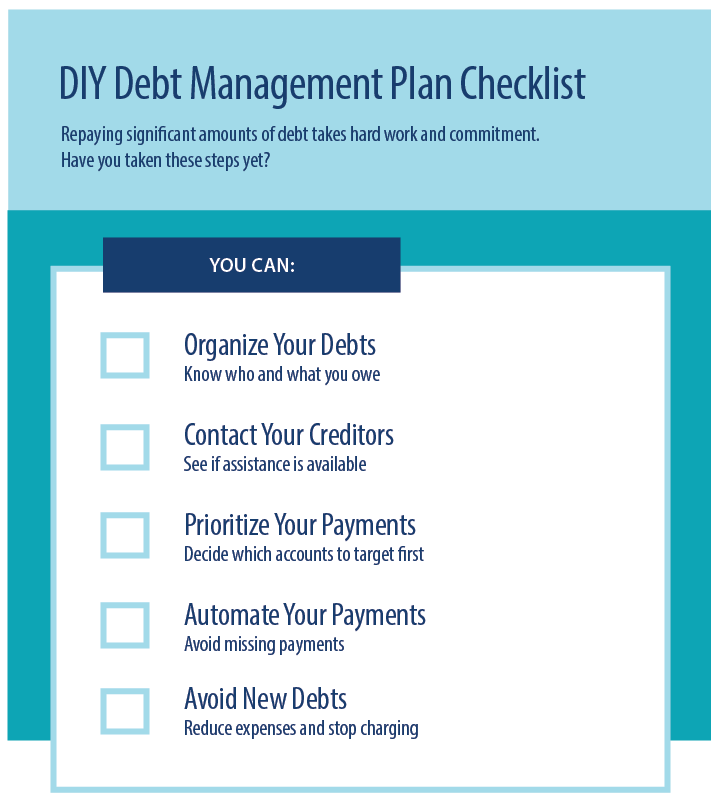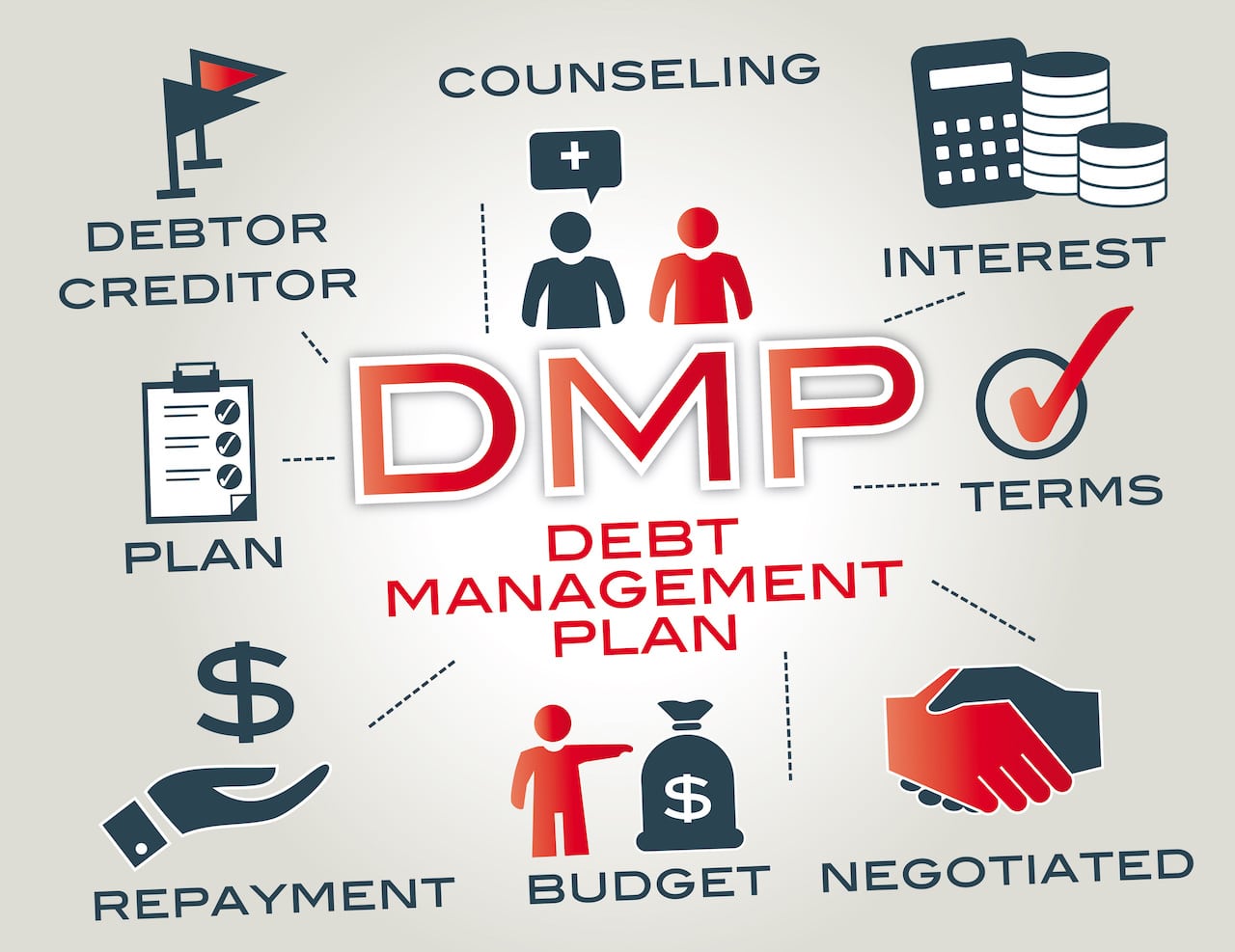Specialist Tips and Strategies for Applying a Successful Financial Debt Administration Plan
When it comes to navigating the intricacies of debt administration, having a well-balanced plan is critical for accomplishing financial security. From evaluating your present economic standing to discussing with financial institutions, each action plays an essential role in forming a successful financial debt monitoring strategy.
Analyzing Your Current Financial Scenario
Before getting started on a financial debt administration plan, it is crucial to completely assess your current financial standing. Understanding your economic scenario is the fundamental step in the direction of efficiently managing and decreasing your financial obligation. Begin by compiling a detailed list of all your financial obligations, consisting of exceptional balances, rate of interest prices, and minimum monthly payments. This will give a clear review of the extent of your monetary responsibilities. Additionally, assess your earnings resources and regular monthly expenses to determine your disposable revenue offered for debt repayment.

Creating a Realistic Budget Plan
Recognizing your current economic scenario lays the foundation for establishing a practical spending plan that aligns with your financial debt management objectives and monetary capacities. When producing a budget plan, it's important to properly track your income, expenses, and debt commitments. Begin by noting all incomes, including incomes, incentives, and any type of additional incomes. Next off, describe your fixed expenses such as rental fee or mortgage payments, utilities, insurance policy, and finance payments. Variable expenses like groceries, home entertainment, and transportation should also be accounted for. By categorizing your expenditures, you can identify locations where you might need to reduce to liberate funds for debt settlement.
:max_bytes(150000):strip_icc()/debt-management-plans-8426688-final-1e629ab12b434dae84166092762fd8d9.png)
Focusing On and Tackling Debts
To efficiently restore control of your financial resources and work towards financial stability, focusing on and tackling your financial obligations is an important step in your financial debt administration strategy. Determine high-interest financial debts that are costing you the most cash and focus on paying them off.
After determining your high-interest debts, take into consideration making use of methods like the financial obligation snowball or debt avalanche approach to pay them off systematically. The debt snowball approach involves paying off the smallest debts initially, while the financial you can try this out debt avalanche technique prioritizes debts with the greatest rate of interest. Pick the approach that lines up best with your monetary objectives and inspires you to maintain making progression.
In addition, consider discussing with lenders for reduced rate of interest rates or establishing a layaway plan if you're battling to fulfill your existing obligations. Looking for help from a credit rating counselor or monetary consultant can likewise provide important understandings and guidance on just how to efficiently tackle your financial debts - debt management plan services. By focusing on and addressing your debts strategically, you can lead the way towards a debt-free future and improved economic well-being
Negotiating With Financial Institutions
When taking part in debt monitoring, bargaining with financial institutions is a critical action towards discovering equally helpful remedies for financial debt settlement. Open up interaction with lenders can result in revised payment strategies, reduced rates of interest, or perhaps negotiation offers. Before starting settlements, it is vital to have a clear understanding of your monetary scenario, including your income, costs, and the total quantity of debt owed. This information will not only assist you make reasonable deals however likewise show to financial institutions that you are committed to solving the financial debt.

Structure Healthy Economic Routines
Including constant budgeting practices is vital for cultivating healthy and balanced monetary practices. Budgeting enables people to track their revenue and expenditures, enabling them to make educated choices regarding their economic concerns. Setting details monetary goals, here are the findings such as conserving for emergencies or retired life, can offer a clear roadmap for managing money effectively.
One more trick facet of structure healthy economic habits is living within one's means. This involves costs much less than what is earned and preventing unnecessary financial debt. Distinguishing and taking on a thrifty way of thinking between wants and needs can assist individuals make even more prudent costs choices.
Consistently checking and reviewing financial statements credit scores reports are vital practices that promote monetary understanding and responsibility. By remaining educated about their financial standing, individuals can identify possible concerns beforehand and take proactive steps to address them.
Moreover, developing a savings behavior, despite percentages, can add significantly to long-term economic security. Conserving routinely not just constructs an economic cushion for unforeseen expenses yet likewise fosters a feeling of discipline and responsibility in the direction of finance. By constantly exercising these routines, people can lay a solid structure for a stable monetary future.
Final Thought
To conclude, implementing a successful financial obligation monitoring plan requires a complete assessment of one's financial scenario, the development of a practical spending plan, prioritizing and tackling financial obligations, bargaining with lenders, and structure healthy and balanced monetary routines (debt management plan services). By following these professional tips and methods, people can take control of their financial resources and job in the direction of attaining financial security see this page and flexibility from financial obligation
Comprehending your current monetary circumstance lays the foundation for creating a realistic budget plan that straightens with your financial debt monitoring goals and economic capabilities.To properly reclaim control of your funds and job in the direction of financial security, focusing on and tackling your financial debts is an important action in your financial obligation management plan.After recognizing your high-interest debts, consider using techniques like the financial debt snowball or financial debt avalanche approach to pay them off methodically. The financial debt snowball approach entails paying off the tiniest financial obligations initially, while the financial debt avalanche technique prioritizes financial debts with the highest possible rate of interest rates.When engaging in financial debt management, discussing with creditors is an important action towards discovering equally helpful solutions for financial obligation repayment.